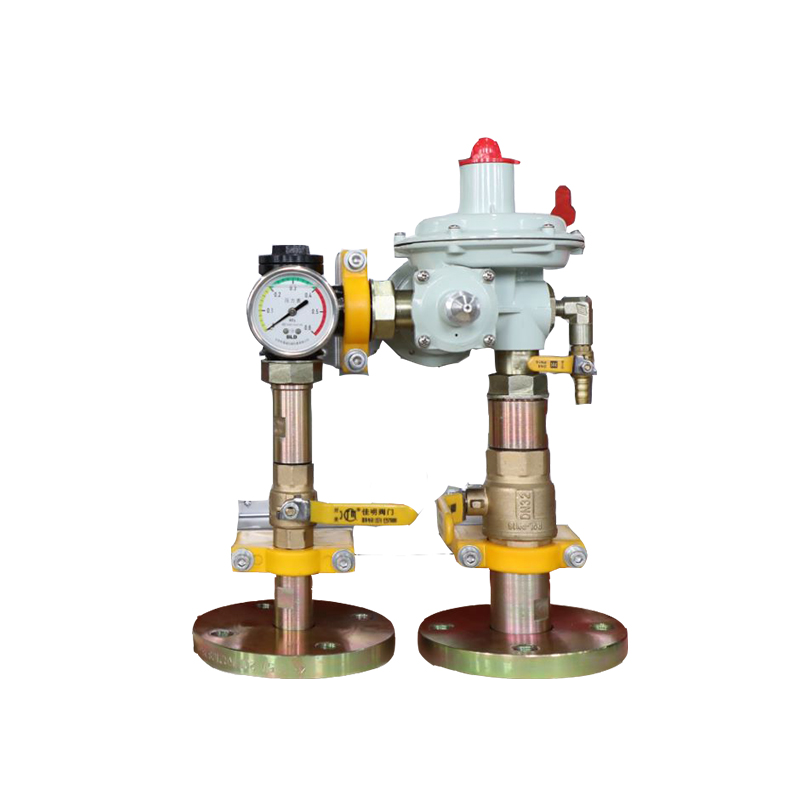
Dec . 30, 2024 02:33
Back to list
gas booster
Understanding Gas Boosters Enhancing Efficiency in Gas Handling Systems
In the realm of industrial applications, gas boosters play a crucial role in enhancing the efficiency of gas handling systems. These devices are designed to increase the pressure of gases to facilitate transportation, utilization, and storage. Understanding how gas boosters work, their applications, and their benefits can provide significant insights for industries relying on gas processes.
What is a Gas Booster?
A gas booster is a mechanical device that compresses and pumps gas to a higher pressure level. It functions similarly to a pump but is specifically designed for compressible fluids, primarily gases. Gas boosters can be powered by various energy sources, including electric motors or pneumatic systems, depending on the requirements of the application. The main purpose of a gas booster is to increase the pressure of gases such as natural gas, methane, propane, and others, making them easier to transport and store.
How Do Gas Boosters Work?
Gas boosters operate on a relatively simple mechanism. When gas enters the booster, it is compressed using a series of stages, often involving pistons or diaphragm arrangements. As the gas is compressed, its volume decreases, and its pressure rises significantly. The efficiency of the gas booster largely depends on its design, the materials used, and the technology implemented.
The process can be explained in a few key steps
1. Intake The gas enters through the booster’s intake port, usually at atmospheric pressure. 2. Compression Inside the booster, the gas is compressed. This can involve multi-stage compression to achieve higher pressure levels without excessive heat generation. 3. Discharge Once the gas is compressed, it is directed through the discharge port to the intended application, whether that is pipeline transmission, storage facilities, or other industrial systems.
gas booster

Applications of Gas Boosters
Gas boosters serve multiple purposes across different industries
1. Natural Gas Distribution In natural gas distribution systems, boosters help maintain adequate pressure to ensure that gas reaches consumers reliably. 2. Chemical Processing Many chemical manufacturing processes require gases to be maintained at specific pressures. Gas boosters facilitate these requirements, ensuring consistent and efficient operation. 3. Manufacturing Industries employing gas in their production processes often utilize gas boosters to maintain pressure and flow rates, particularly in pneumatic systems and tools. 4. Oil and Gas Extraction In oil fields, gas boosters are employed to enhance the extraction process by increasing the pressure of natural gas used for enhanced oil recovery. 5. Transportation In the transportation sector, gas boosters enable the efficient movement of gases through pipelines, ensuring safe and economical transport across long distances.
Benefits of Using Gas Boosters
Incorporating gas boosters into gas handling systems offers numerous advantages
1. Increased Efficiency By boosting the pressure of gases, industries can enhance the overall efficiency of their operations, reducing energy consumption and operating costs. 2. Improved Safety Gas boosters can help mitigate safety risks by ensuring that gas remains at safe pressure levels throughout processing and transportation. 3. Flexibility in Operations Gas boosters can be tailored to meet specific pressure requirements, providing flexibility in various industrial applications and adapting to changing demands. 4. Reduction in Equipment Wear Maintaining optimal pressure levels can reduce strain on other equipment, thereby prolonging their lifespan and reducing maintenance costs. 5. Environmental Benefits Efficient gas handling can lead to reduced emissions and decreased waste, contributing to a more sustainable approach in industrial processes.
Conclusion
Gas boosters are essential components of modern gas handling systems, providing significant advantages in terms of efficiency, safety, and flexibility. As industries continue to seek ways to optimize their operations and reduce their environmental footprint, the role of gas boosters is likely to become even more critical. By understanding the function and benefits of gas boosters, professionals in various fields can make informed decisions on integrating these systems into their operations, ultimately leading to improved productivity and sustainability in gas management.
Latest news
-
Safety Valve Spring-Loaded Design Overpressure ProtectionNewsJul.25,2025
-
Precision Voltage Regulator AC5 Accuracy Grade PerformanceNewsJul.25,2025
-
Natural Gas Pressure Regulating Skid Industrial Pipeline ApplicationsNewsJul.25,2025
-
Natural Gas Filter Stainless Steel Mesh Element DesignNewsJul.25,2025
-
Gas Pressure Regulator Valve Direct-Acting Spring-Loaded DesignNewsJul.25,2025
-
Decompression Equipment Multi-Stage Heat Exchange System DesignNewsJul.25,2025

